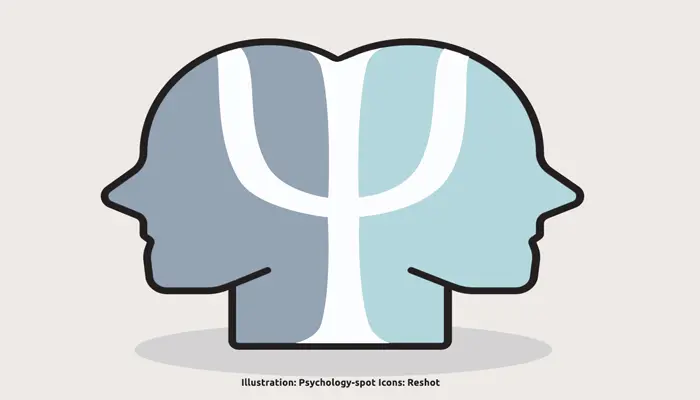
“Forgiveness liberates the soul, it removes fear. That’s why it’s such a powerful weapon”, Nelson Mandela said. He was not wrong. The benefits of forgiveness are enormous. Science has shown that forgiveness is good for your health, although it is not always easy to let go of that resentment, especially when the injury is recent or particularly deep and touches our most sensitive fibers.
The cost of carrying resentment
Prolonged resentment, pent-up anger, and unresolved conflicts can end up affecting our health, not only emotionally but also physically. Being hurt, disappointed and with a desire for revenge implies a huge psychological burden that not only affects us emotionally, but its effects are transferred to our health.
Chronic anger, for example, activates the fight or flight mode, which generates changes in the hormonal level and in the nervous system that end up altering our heart rate, blood pressure and immune response. These changes, maintained over time, something common when we experience resentment against someone, increase the risk of developing different diseases. Forgiveness, on the other hand, is a liberating agent.
A study conducted at the University of Alabama looked at the health benefits of forgiveness. Eighty-one adults reported a time when they felt particularly hurt or betrayed – some had forgiven and some had not. Then they were evaluated from the physical symptoms to the medications they used and the emotions that this memory aroused. It was found that people who had forgiven showed decreased reactivity and tended to be in better health.
These researchers believe that the benefits of forgiveness are due, in large part, to the fact that this act mitigates negative emotions and stress, in a way that acts as a protective factor for health. In fact, people who hold a grudge are also more likely to experience severe depression and PTSD. In contrast, those who forgive more easily tend to feel more satisfied with their lives and experience less depression, anxiety, stress, anger and hostility. It has also been found that forgiveness frees us from the anguish that usually generates keeping an open wound.
A study developed at Luther College in the United States found that forgiveness can act as a protective factor against the damage caused by stress. These psychologists found that people who forgiven more easily could better cope with highly stressful life events and these generated less distress, so their impact on health was less.
In another investigation, these same psychologists followed a group of people for five weeks to analyze changes in their levels of forgiveness in everyday life. They found that when they forgave more the daily offenses, their stress levels decreased. In turn, that stress reduction led to fewer psychological problems and reduced physical discomfort.
What does forgiveness really entail?
The act of forgiving someone does not imply forgetting what he or she has done or giving up justice, but only allowing the desire for revenge to dissipate, coupled with a willingness to renounce resentment towards the person who harmed us.
Therefore, forgiveness arises from an offense perceived as intentional by the victim, who initially reacts with an attitude of revenge. But it is followed by a process of reflection, which can also take the form of cognitive rumination, through which the first emotional reaction fades to give way to an intentional act of renouncing revenge.
Forgiveness is an active process in which we consciously make the decision to let go of negative feelings, regardless of whether the person who caused us harm deserves it or not. Forgiveness is not an outward-looking act, rather it is a self-liberating decision. Interestingly, as we release anger, resentment, and hostility, we can begin to feel empathy and even compassion for the person who hurt us.
Therefore, opening ourselves to forgiveness is not only a wise choice, it can also help us protect and preserve our well-being. Our body benefits when we experience the positive emotions and feelings of relief and lightness that characterize forgiveness.
To take advantage of the benefits of forgiveness and that this act is not experienced as an obligation, each person must respect their own rhythm of emotional healing. Enright Forgiveness Process Model, for example, is based on a 20-step system that allows us to progress through four phases: discover the negative feelings we experience regarding the offense, deciding to forgive, working to understand who offended us and discover empathy and compassion for that person.
This model not only helps us to forgive, but it also allows us to see the person against whom we hold a grudge or desire for revenge, as another hurt human being, rather than stereotyping and defining him or her solely by his or her hurtful actions. That will help us to let go of resentment, to free ourselves from the offense that is hurting us.
Sources:
Long, K. et. Al. (2020) Forgiveness of others and subsequent health and well-being in mid-life: a longitudinal study on female nurses. BMC Psychology; 8: 104.
Toussaint, L. et. Al. (2016) Effects of lifetime stress exposure on mental and physical health in young adulthood: How stress degrades and forgiveness protects health. J Health Psychol; 21(6): 1004-1014.
Toussaint, L. et. Al. (2016) Forgiveness, Stress, and Health: a 5-Week Dynamic Parallel Process Study. Ann Behav Med; 50(5):727-735.
Lawler, K. A. et. Al. (2005) The Unique Effects of Forgiveness on Health: An Exploration of Pathways. Journal of Behavioral Medicine; 28(2): 157-167.



